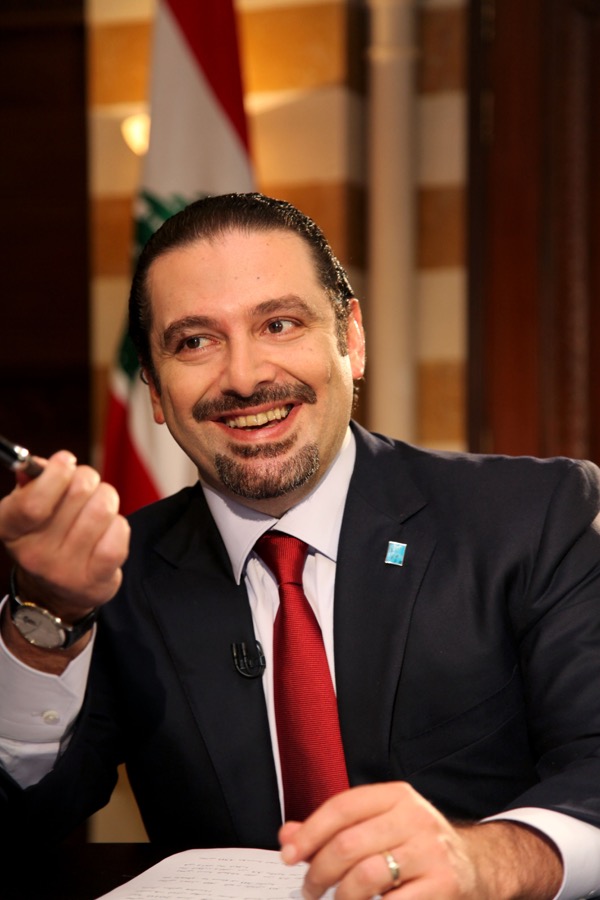 BEIRUT, Lebanon – The Future Movement won crucial municipal elections in Sidon , south Lebanon
BEIRUT, Lebanon – The Future Movement won crucial municipal elections in Sidon , south Lebanon
Voter turnout during the peaceful and smooth voting in south Lebanon and Nabatieh reached 48.15 percent, Interior Minister Nouhad Mashnouk told a news conference at his office hours after polls closed at 7 p.m.
Former Prime Minister Saad Hariri, who made a previously unannounced visit to the southern city of Sidon Sunday night, hailed the major victory achieved by the Futurebacked “Developing Sidon, Sidon Forward,” headed by current Mayor Mohammad Saudi, even before official results were announced.
“The new municipal council headed by Mohammad Saudi will work for the future of Sidon. We are keen on Sidon’s development. Sidon is the capital of the south,” Hariri told reporters amid a large crowd of supporters who gathered at the residence of Shafic Hariri, the brother of the late former Prime Minister Rafik Hariri, in Sidon.
Hariri’s aunt, Sidon’s MP Bahia Hariri, and former Prime Minister Fouad Siniora were on hand to welcome him.
Hariri said the municipal and mukhtar elections in Sidon carried “a political message” that the Future Movement exists in all of Lebanon. “The Future Movement is the only movement that represents all sects,” he said.
In response to a question, Hariri said the major political parties were using the municipal polls as a rehearsal for next year’s parliamentary elections and also to showcase their political base.
Hariri said he had opened “a new page” with his political rival, former Prime Minister Najib Mikati. He disclosed that he had agreed with Mikati during last week’s ice-breaking meeting with him hosted by Prime Minister Tammam Salam on a consensus list to contest the municipal elections in the north planned next Sunday.
Saudi’s list faced tough competition from two rival tickets, one backed by the Popular Nasserite Organization headed by former Sidon MP Osama Saad, and another backed by an Islamist group.
Sunday’s municipal and mukhtar elections in south Lebanon and Nabatieh came two weeks after similar polls were staged in Mount Lebanon, Beirut and the Bekaa Valley. The final round of municipal elections will take place in the north and Akkar on May 29.
Mashnouk reiterated his call for the election of a president before holding parliamentary polls. He said that the country’s political system has been stalled due to the absence of a president.
Lebanon has been without a head of state since former President Michel Sleiman’s tenure ended in May 2014. Parliament has since been unable to elect a successor due to a lack of quorum.
“The Lebanese system is stalled due to the absence of a president rather than because of the extension of Parliament’s mandate,” Mashnouk said, referring to the extension of Parliament’s term twice in 2013 and 2014. He warned that the talk about holding parliamentary elections before the election of a president is a recipe for “a political clash” in the country.
“Once a president is elected, parliamentary elections can be held one or two weeks later,” Mashnouk said.
He added that 60 percent of calls received by his ministry’s hotline for the elections were from heads of polling stations, 30 percent from citizens and 10 percent from an election monitoring group, the Lebanese Association for Democratic Elections.
LADE released a report saying that it recorded over 490 violations in both the south Lebanon and Nabatieh governorates, most of which were in the Tyre and Nabatieh districts.
LADE said 22.9 percent of the violations were recorded in the Sidon district, 37.7 percent in the Jezzine district and 39.2 percent in the Tyre district.
As for the Nabatieh governorate, 29.5 percent of the violations recorded by LADE were in the Bint Jbeil district, 30.7 percent in the Hasbaya and Marjayoun districts combined and 39.5 percent in the Nabatieh districts.
LADE’s report said violations were ongoing during the polls, including bribes, rampant chaos at polling stations, pressure on voters by opposing candidates and candidates campaigning on election day.
Although south Lebanon and Nabatieh are considered to be the heartland of the Amal Movement and Hezbollah, families and leftist parties have formed candidate lists attempting to challenge the two groups’ established reign in several towns.
As in previous polls, over 20,000 military and security personnel deployed heavily at polling stations in the south to ensure smooth and safe balloting.

Leave a Reply
You must be logged in to post a comment.